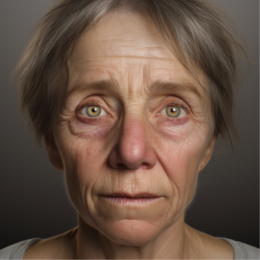Taking the First Step in Alcohol Addiction Recovery

We thought you might like these too…
- Understanding the Complex Roots of Alcohol Addiction
- Which Condition Is Often a Result of Alcohol Addiction? (Find Out Here!)
- What Does Nicotine Addiction Feel Like? Understanding Dependency
Many people often ask, “What is alcohol addiction?” Alcohol addiction, or Alcohol Use Disorder (AUD), is a chronic relapsing disorder that affects millions worldwide. It’s characterized by compulsive alcohol drinking, loss of control over intake, and a negative emotional state when alcohol is no longer available.
Statistics:
- According to the 2021 National Survey on Drug Use and Health, 28.6 million adults ages 18 and older (11.3% in this age group) had AUD in 2021.
- Among youth, an estimated 894,000 adolescents ages 12 to 17 (3.4% of this age group) had AUD during the same time frame.
Recognizing the Signs of Alcohol Addiction
Common Signs and Symptoms of Alcohol Addiction
AUD can range from mild to severe. It encompasses conditions that some might call alcohol abuse, dependence, or alcoholism1. But what causes alcohol addiction? Factors include genetics, environment, and personal choices.
The Role of Denial and Its Impact on Seeking Help
Denial can be a significant barrier. Many individuals with AUD might not recognize or admit they have a problem, making the first step toward treatment even more challenging.

Alex’s Personal Story
Meet Alex, a 35-year-old marketing executive. On the surface, Alex had it all. But behind closed doors, he struggled with a growing dependence on alcohol. It began as social drinking during college, but over the years, it became a coping mechanism for stress.
Alex would often find himself drinking more than he intended. His family noticed the change, but Alex was in denial. It wasn’t until a near-fatal car accident that he realized the gravity of his addiction.
The First Step: Admitting the Need for Help
The journey to recovery often begins with admitting there’s a problem. Recognizing and accepting the signs of addiction can pave the way for seeking professional help. For Alex, the accident was a stark reminder of the dangers of his addiction.
Self-Assessment and Acceptance
Self-reflection is crucial. Ask yourself: How has alcohol affected my life? What consequences have I faced due to my drinking? Answering these questions can provide clarity and motivation to seek treatment.
Seeking Professional Guidance
The Role of Healthcare Professionals in the Treatment Process
Healthcare professionals play a pivotal role in diagnosing AUD and recommending appropriate treatments. They can provide insights into what causes alcohol addiction and how to stop alcohol addiction effectively.
The Importance of Finding the Right Treatment Provider
Not all treatment providers are the same. It’s essential to find one that understands your needs and offers evidence-based treatments.
Steps to Take When Seeking Professional Help
Start by consulting a primary care physician, who can provide referrals to specialists or treatment centers.
Treatment Options for Alcohol Addiction
Inpatient vs. Outpatient Treatment
- Inpatient Treatment: This involves staying at a specialized facility for a specific duration, typically ranging from 30 to 90 days or even longer. The immersive environment allows individuals to focus solely on their recovery, away from daily triggers and stresses. It offers a structured schedule that includes therapy sessions, group counseling, and other therapeutic activities.
- Outpatient Treatment: This option allows individuals to live at home and attend treatment sessions at a clinic or facility regularly. It’s suitable for those with milder forms of AUD or those who cannot take time away from their daily responsibilities. The frequency of sessions can vary, with some programs requiring daily attendance and others only a few times a week.
Quick Poll
Detoxification Programs
Before starting any treatment, detoxification is often the first step. It involves clearing alcohol from the body and managing withdrawal symptoms. Withdrawal from alcohol can be dangerous, with symptoms ranging from mild anxiety and fatigue to severe complications like seizures and delirium tremens. Medical supervision during detox ensures safety and comfort.
Therapy and Counseling
- Cognitive-Behavioral Therapy (CBT): This approach helps individuals identify and change negative thought patterns and behaviors related to drinking. It equips them with the skills to cope with situations that trigger their drinking urge.
- Motivational Enhancement Therapy: This short-term therapeutic approach helps individuals resolve their ambivalence about treatment and stop drinking. It focuses on the benefits of sobriety and sets achievable goals.
- Family Therapy: Alcohol addiction doesn’t just affect the individual but also their family. This therapy involves family members in the treatment process, addressing issues and improving the overall family dynamic.
Medication-Assisted Treatment
Several FDA-approved medications can support recovery from alcohol addiction:
- Naltrexone: Blocks the euphoric effects and feelings of intoxication, reducing the urge to drink.
- Acamprosate: Helps restore the brain’s chemical balance, reducing prolonged withdrawal symptoms such as insomnia, anxiety, and restlessness.
- Disulfiram: Causes unpleasant effects when alcohol is consumed, such as nausea and flushing of the skin, acting as a deterrent from drinking.
The Significance of Individualized Treatment Plans
Every individual is unique, and so is their journey with AUD. Personalized treatment plans cater to individual needs, ensuring a higher chance of success. These tailored plans consider one’s history, severity of addiction, co-occurring mental health disorders, and personal preferences.
Support Groups
Support groups, such as Alcoholics Anonymous, provide peer support, helping individuals maintain sobriety. These groups offer a platform for sharing personal experiences, challenges, and successes, fostering a sense of community and belonging. They constantly remind one that one is not alone in their journey, providing encouragement and motivation. Moreover, these groups’ accountability can be instrumental in preventing relapses and ensuring long-term sobriety.
Conclusion
Taking the first step towards treatment for alcohol addiction is challenging but crucial. Remember, you’re not alone in this journey. Many have walked this path and found hope and recovery on the other side. Have you or someone you know ever faced challenges similar to Alex’s?
YOUR STORY COULD INSPIRE OTHERS AND CREATE A SUPPORTIVE COMMUNITY. TOGETHER, LET’S BREAK THE SILENCE AND SUPPORT ONE ANOTHER ON THE JOURNEY TO RECOVERY. SHARE YOUR STORY TODAY.





